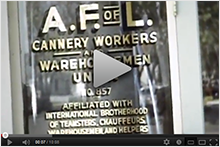Private Sector Cases
Noteworthy Private Sector Cases Litigated by Beeson, Tayer & Bodine Attorneys
- Safeway v. NLRB (9th Cir. 2021) The Court affirmed the NLRB’s application of liberal “discovery-type” standard of relevance in ruling that the Union made sufficient showing of relevance to be entitled to requested information regarding non-union employees.
- Loomis Armored (NLRB 2016) The NLRB reversed a decision from 1985 to hold that a security guard company that voluntarily recognizes a “mixed-guard” union (a union with both guard and non-guard members) may not withdraw recognition from the union after expiration of the contract without first demonstrating that the union has lost majority support.
- Stericycle (NLRB 2011) The NLRB ruled that in the context of NLRB-conducted union elections, unions do not interfere with elections when they file lawsuits on behalf of bargaining unit employees (for example, wage-and-hour complaints) so long as the lawsuit is filed before the union files for an election with the NLRB.
- Granite Rock v. Teamsters Local 287 (United States Supreme Court, 2010) The United States Supreme Court reversed the Ninth Circuit Court of Appeals in holding that the dispute between the employer and union over the ratification of a collective bargaining agreement was a matter for the District Court to decide, rather than the arbitrator designated under the grievance procedure in the contract. The Supreme Court affirmed the Ninth Circuit in holding that a the employer could not sue the union for tortious interference under the federal Labor Management Relations Act.
- Teamsters Local 856 v. Priceless, LLC (Cal. Court of Appeal, 2003). The Court of Appeal held that public employees had a reasonable expectation of privacy in their personnel files; salaries of individually identifiable employees were not subject to disclosure to newspapers pursuant to California Public Records Act (CPRA), as employees’ interest in nondisclosure outweighed public interest in disclosure; and earnings of individually identified peace officers were not subject to disclosure under CPRA absent compliance with Penal Code provisions governing disclosure of such records.
- Retlaw Broadcasting Co. v. National Labor Relations Board (9th Cir. 1999). Court of Appeals, held negotiation of personal services contracts (PSCs) was permissive bargaining subject, and television station thus committed unfair labor practice by bargaining such subject to impasse, and confidentiality concerns did not support station’s refusal to disclose PSCs.
- Newspaper Drivers’ Union, Local 921 v. San Francisco Newspaper Agency (9th Cir. 1996). Court of Appeals upheld preliminary injunction forbidding employer conduct and maintaining status quo pending arbitration as injunction was necessary to preserve union’s arbitration remedy.
- Reich v. Local 890, Intern. Broth. of Teamsters (N.D. Cal. 1996). Secretary of Labor brought suit pursuant to Labor-Management Reporting and Disclosure Act (LMRDA) challenging union dues payroll deduction system to fund election of union officials. Court held that Secretary was precluded from challenging union dues payroll deduction system to fund election of union officials due to failure by union candidate protesting election process to exhaust her internal remedies before seeking relief from Secretary.
- McKesson Corp. v. Local 150 IBT (9th Cir. 1992). Employer brought action seeking to vacate arbitration award directing reinstatement of employee. Court of Appeals held that: (1) arbitrator’s implicit determination that he had jurisdiction to issue untimely award was not unreasonable, and (2) arbitrator could find that provision for termination of employee upon “absence from work” for 12 consecutive months did not apply to period during which employee had been wrongfully discharged by the employer.
- Teamsters Local No. 216 v. Granite Rock Co. (9th Cir. 1988). Union brought action to compel arbitration of implied provision of collective bargaining agreement. Court of Appeals held that court was not required to determine whether implication of alleged implied provision was plausible, and dispute as to whether alleged implied provision would violate federal labor law did not preclude arbitration.
- Granny Goose Foods, Inc. v. Teamsters Local No. 70 (U.S. Supreme Court 1974). District Court held a labor union in criminal contempt for violating temporary restraining order, and the union appealed. The Supreme Court affirmed reversal by Court of Appeals, holding that the restraining order issued by California state court before removal of case to federal district court expired long before alleged contempt approximately six months after the removal of case.
- N.L.R.B. v. San Francisco Typographical Union No. 21 (9th Cir. 1973). On appeal from National Labor Relations Board order that union rescind its disciplinary actions against four members who were supervisory employees of employer Court of Appeals held that union had right to punish members who refused to honor the union’s picket line even though the three members were supervisors; the employer’s right to select management representatives was not affected by the union’s action in expelling and fining the members.
- In re Lane (Cal. Supreme Court 1969). Habeas corpus proceeding brought by union officer who had been convicted of violating municipal code sections prohibiting remaining on another’s property after being notified by owner to leave and from distributing handbills on premises of another without his consent. The California Supreme Court reversed, holding that officer of labor union involved in dispute with publisher of newspapers in which supermarket advertised had right under free speech guarantees to distribute handbills on privately owned sidewalk areas opened by supermarket for use by its customers as sole means of ingress and egress to and from supermarket and such sidewalk was a ‘public area’ in which members of public might exercise First Amendment rights.


